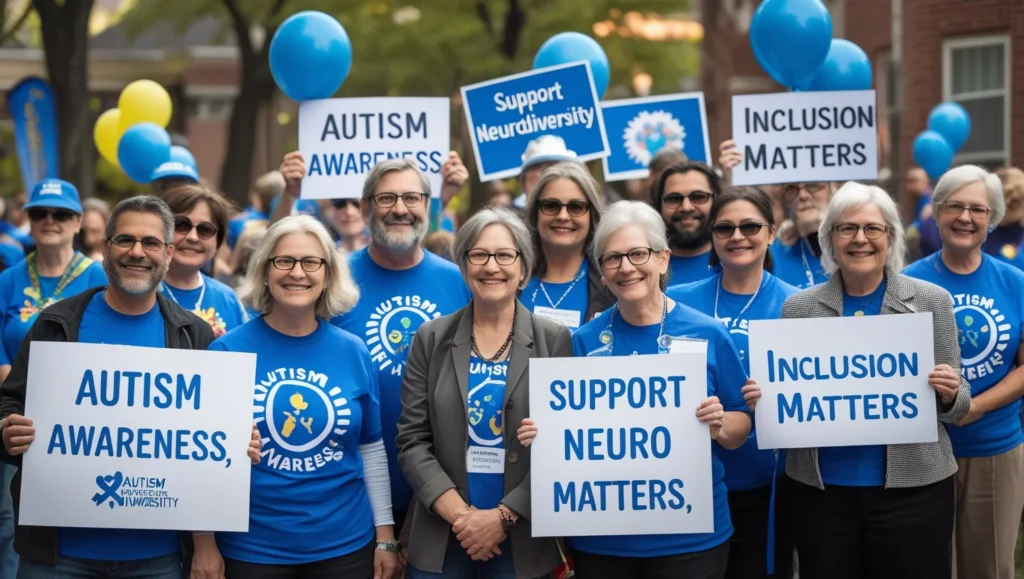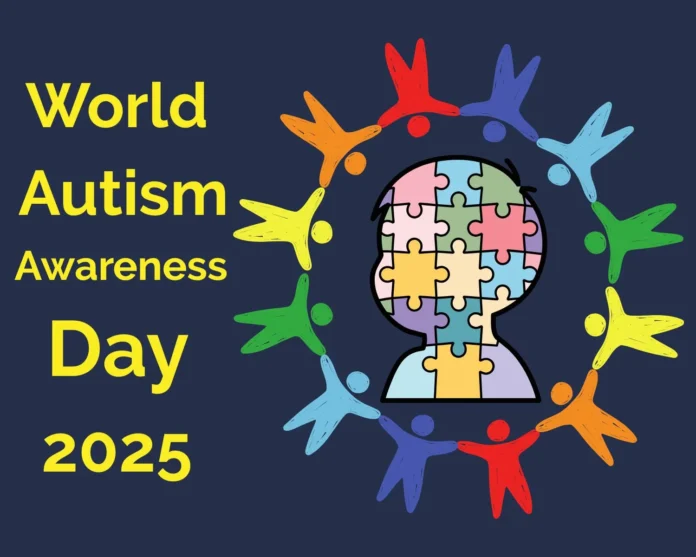Introduction
World Autism Awareness Day 2025 is a global initiative observed on April 2nd to promote understanding, acceptance, and support for individuals with autism spectrum disorder (ASD). This annual event, established by the United Nations in 2007, aims to raise awareness of the challenges faced by autistic individuals while celebrating their unique strengths and contributions to society. As the world progresses towards a more inclusive future, this day serves as a vital reminder of the need for continued advocacy, education, and community engagement.
In this comprehensive article, we will explore the significance of World Autism Awareness Day 2025, highlight ongoing initiatives, and discuss how individuals, businesses, and communities can contribute to a more inclusive world for those on the autism spectrum.
Understanding Autism Spectrum Disorder (ASD)
Autism Spectrum Disorder is a neurological and developmental condition that affects communication, social interactions, and behavior. While symptoms and their severity vary, common characteristics include:
- Difficulty in social communication and interaction
- Repetitive behaviors and restricted interests
- Sensory sensitivities (e.g., sensitivity to noise, light, or textures)
- Unique strengths, such as strong attention to detail, problem-solving skills, and creativity
According to the World Health Organization (WHO), approximately 1 in 100 children worldwide is diagnosed with autism, though prevalence rates vary by region. Early diagnosis and intervention can significantly improve quality of life and developmental outcomes.
The Theme for World Autism Awareness Day 2025
Each year, World Autism Awareness Day follows a specific theme that focuses on key issues related to autism advocacy. The theme for 2025 emphasizes “Empowering Neurodiverse Voices: Building an Inclusive Society.” This theme underscores the importance of amplifying the voices of autistic individuals, fostering inclusive workplaces and educational environments, and ensuring equitable access to services and resources.
Why World Autism Awareness Day Matters
1. Promoting Awareness and Acceptance
Despite increased awareness, many misconceptions about autism persist. Some individuals may incorrectly assume that all autistic people have the same abilities or challenges, leading to stereotyping and social exclusion. By educating the public, World Autism Awareness Day helps dismantle myths and encourages greater acceptance of neurodiversity.
2. Advocating for Inclusive Policies
World Autism Awareness Day serves as a platform for policymakers, educators, and healthcare professionals to push for improved services, accommodations, and legal protections for autistic individuals. Inclusive policies in education, employment, and healthcare are essential for ensuring equal opportunities.
3. Supporting Families and Caregivers
Caring for an autistic individual can present unique challenges. Support networks, accessible therapies, and community resources play a crucial role in assisting families. Awareness campaigns help highlight available support services and encourage societal understanding of their needs.
Ways to Get Involved in World Autism Awareness Day 2025
1. Participate in Awareness Campaigns
Organizations worldwide host events, workshops, and online campaigns to educate people about autism. You can participate by:
- Attending seminars or webinars
- Sharing educational content on social media using hashtags like #WorldAutismAwarenessDay2025
- Wearing blue in solidarity with the autism community
2. Support Autism-Friendly Businesses and Organizations
Many companies are making efforts to become more inclusive by hiring neurodiverse individuals and creating autism-friendly environments. Supporting these businesses helps promote workplace diversity and equal opportunities.

3. Advocate for Inclusive Education
Education plays a vital role in empowering autistic individuals. Schools should provide specialized learning programs, trained staff, and adaptive resources to cater to diverse needs. Parents, educators, and advocates can work together to ensure inclusive learning environments.
4. Contribute to Autism Research and Charities
Several organizations are dedicated to autism research, early intervention programs, and advocacy. Donating or volunteering with reputable autism charities can make a significant impact. Some prominent organizations include:
- Autism Speaks
- The Autism Society
- The National Autistic Society (UK)
- Autism Research Institute
5. Engage with Autistic Voices
One of the most effective ways to understand autism is by listening to autistic individuals themselves. Many self-advocates share their experiences through blogs, books, podcasts, and public speaking engagements. Engaging with their perspectives fosters empathy and more informed advocacy.
The Role of Businesses in Supporting Autism Awareness
1. Creating Inclusive Work Environments
Businesses can contribute to autism awareness by implementing inclusive hiring practices, offering workplace accommodations, and fostering a culture of acceptance. Neurodiverse individuals bring unique skills that can enhance productivity and innovation in various industries.
2. Hosting Autism Awareness Events
Companies can organize events or training sessions to educate employees about autism. Hosting guest speakers, offering sensitivity training, and providing mentorship programs for neurodiverse employees can create a more inclusive workplace.
3. Supporting Autism-Friendly Policies
Advocating for policies that promote accessibility, such as quiet workspaces and flexible work arrangements, helps create a comfortable environment for autistic employees.
The Future of Autism Advocacy
While significant progress has been made in autism awareness and support, challenges remain. The future of autism advocacy must focus on:
- Greater Accessibility: Expanding access to diagnosis, therapies, and support services worldwide.
- Employment Opportunities: Encouraging businesses to adopt neurodiversity hiring initiatives.
- Public Awareness Campaigns: Strengthening global efforts to eliminate stigma and misinformation about autism.
- Technological Advancements: Utilizing technology to enhance communication, education, and independence for autistic individuals.
Conclusion
World Autism Awareness Day 2025 is more than just a day of recognition—it is a movement towards a more inclusive and accepting society. By participating in advocacy efforts, supporting neurodiverse individuals, and pushing for policy changes, we can build a world where everyone, regardless of neurological differences, has the opportunity to thrive.
Let us take this opportunity to listen, learn, and take meaningful action in support of the autism community. Whether through small gestures or large-scale initiatives, every effort counts in fostering a world that embraces and empowers all individuals on the autism spectrum.


